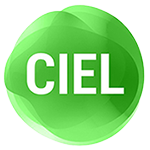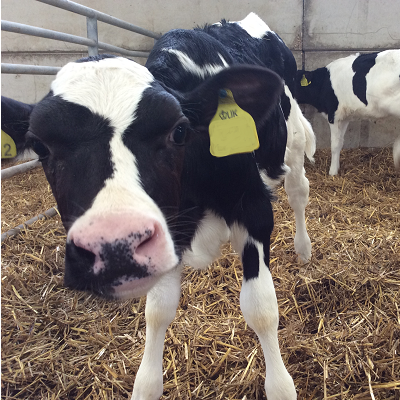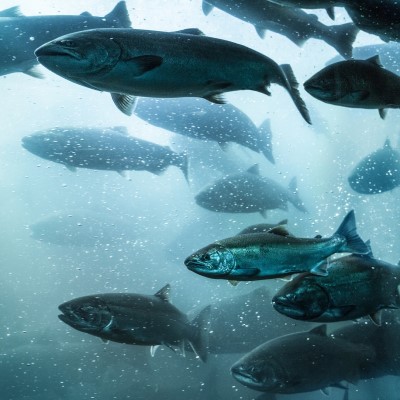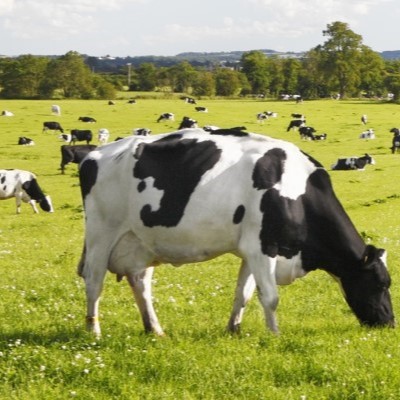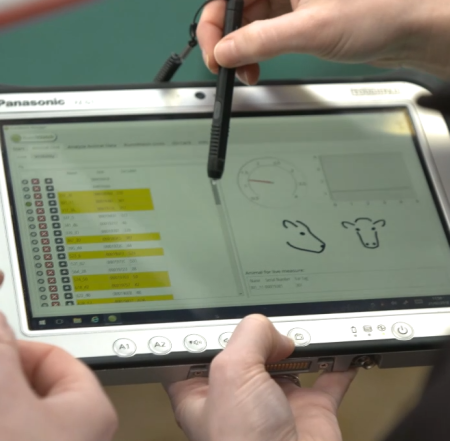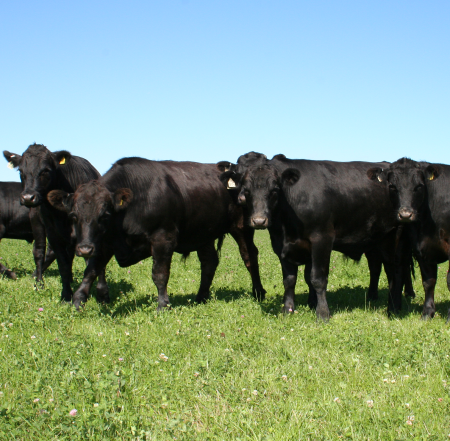CIEL | Case Study: CIEL-supported Member Research 2021-22 Ruminants
Genetics | Reproduction | Behaviour | Nutrition | Health & Welfare | Productivity | Food Integrity | Environmental Impact
Below is a CIEL Member Research roundup for 2021-22 ruminants
Dairy
-
Sustainable palm-free fat supplementation for dairy cows

Nutrition and supplement company, UFAC UK partnered with the University of Nottingham to trial the development of a new feed approach and product(s) for ruminants.
Utilising the research capability within the Centre for Dairy Science Innovation (CDSI) at Nottingham, the project can deliver benefits throughout the supply chain, from improving productivity and sustainability, to enhancing animal health & welfare and product quality.
-
Assessing increase in antibiotic efficacy in bovine mastitis

Anifera is a company focussed on developing adjunct therapy to improve the efficacy of antibiotics used in animal health. They worked alongside the Moredun Research Institute to investigate efficacy of their leading compound to enhance penicillin treatment for bovine mastitis.
Results will be used to confirm efficacy observed in a previous small-scale study and to further explore options for commercialisation of their compound to treat this significant economic and welfare challenge for the global dairy industry.
-
Benefits of feeding a molasses-based liquid feed

Molasses-based liquid feeds specialists ED&F Man worked with researchers at the University of Reading to investigate the effect of feeding a molasses blend diet on digestibility, nitrogen efficiency, energy balance and methane emissions.
New information from the CIEL-supported trial will be used throughout the agricultural supply chain to support future sustainable practices on-farm and make informed decisions on feed ingredients to support ruminant health, welfare and production.
Beef
-
A data-driven blueprint for net zero

Beef farmers want clear guidance on how to improve their carbon footprint through simple efficiency changes. This ABP-led project identified the relationships between genetics, feed efficiency and finishing system on farm GHG emissions and economic efficiency, while meeting target carcase specifications.
The work will inform the development of a tool that will empower beef farmers to leverage their data to help identify trade-offs and potential economic gains depending on management factors; such as breed or finishing method, and to evaluate differences in GHG emissions. The overall aim is to provide farmers with a data-driven decision support blueprint they can implement to reduce GHG emissions in the most economically viable manner.
-
Intranasal vaccination booster for cattle

Boehringer Ingelheim Animal Health collaborated with Buitelaar and the University of Nottingham to assess how different respiratory vaccine programmes impact on the health and performance of dairy-sourced beef calves.
The field study investigated whether the addition of a single dose of a modified live intranasal vaccine to the existing protocol, led to a reduction in the incidence of bovine respiratory disease, associated antimicrobial use, and improved performance of calves.
Bovine respiratory disease continues to present a challenge to the health of young cattle. The outcomes of the study add to the understanding of how vaccines against respiratory pathogens can safeguard health, optimise productivity and reduce the use of antibiotics on calf rearing units.
Dairy and Beef
-
Validation of a new diagnostic lab assay for BVD

Biotangents partnered with AFBI to independently validate their new molecular diagnostic laboratory assay for bovine viral diarrhoea (BVD) in serum samples.
BVD testing is currently carried out by ELISA or PCR test methods. Both processes are however complex and labour intensive. Biotangents’s technology couples high diagnostic accuracy with a simple protocol and rapid run time.
-
Resource use efficiency – protein sources in calf milk formulas

Volac and AFBI collaborated on this project which aims to maximise resource use efficiency of dairy protein through the use of novel vegetable protein sources in pre-ruminant calf diets. The study determined the suitability of such protein sources in milk formulas for modern day calf rearing systems.
This will provide a platform for advancements in precision nutrition formulation to reduce the reliance on dairy protein in pre-weaned calf diets. The project also investigated best outcomes in terms of animal production, health and welfare. Successful application of novel vegetable protein sources in calf diets will contribute to better resource use efficiency of dairy protein. This, in turn, will create more sustainable approaches to calf rearing and better use of dairy protein in the food-feed industry.
Sheep
-
Integrating genomic data into Texel genetic improvement

This project, led by the British Texel Sheep Society, could pave the way for the inclusion of genomic information in performance evaluations of pedigree Texel animals.
The project, aimed to provide routine delivery of genomic breeding values to Texel breeders, a first for the sheep industry in the UK.
Undertaken in collaboration with SRUC EGENES, AbacusBio and Map of Ag Group, the project used the Society’s database of genotypes and phenotypes to generate more accurate and novel information on pedigree Texel sheep. The work aimed to de-risk the adoption of the genomic evaluation process, identifying the most effective approach to ensure uptake of genomic information by Texel breeders.
All ruminants
- Characterisation of methane-reducing seaweed Asparagopsis

Devenish and SRUC carried out research to comprehensively characterize the red seaweed Asparagopsis. This has been shown to be an extremely efficient inhibitor of methane emissions by ruminants.
Described as a “game-changer” regarding its ability to reduce ruminant methane emissions, Asparagopsis has consistently been proven to reduce methane emissions in sheep, beef and dairy cows by 40 – 90%. A clear understanding of its composition is however unknown. This is required to ensure the efficacious product can be correctly formulated into animal feed & diets, and used in an effective, efficient and safe manner.
Concludes Member Research roundup 2021-22 ruminants.

